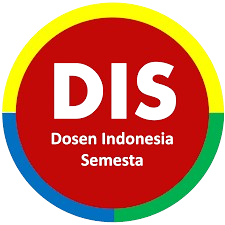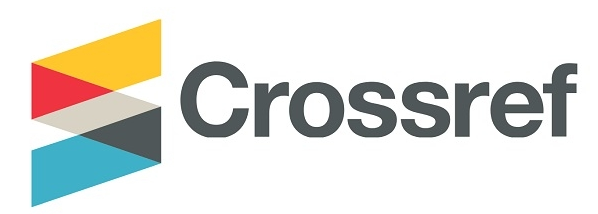EXPLORING COOPERATIVE PRINCIPLES IN PLASTIC SURGERY PODCAST CONVERSATIONS
DOI:
https://doi.org/10.36526/ln.v9i1.5285Keywords:
Conversation Analysis, Cooperative Principles, Spoken InteractionAbstract
This study investigates how Grice’s Cooperative Principle and Leech’s Politeness Principle function in unscripted podcast dialogues on the topic of plastic surgery. While these pragmatic frameworks have been widely applied in analyzing spoken interaction, their application in informal digital contexts such as podcasts remains underexplored. Using a descriptive qualitative method, this research analyzes transcripts from two YouTube podcast episodes: Megan Fox: My Plastic Surgery Story by Call Her Daddy and Why We Became Plastic Surgeons by Dr. CalvertTV. The findings reveal that speakers generally adhere to the maxims of quality, quantity, relation, and manner, while also applying politeness strategies including tact, modesty, and agreement. However, instances of flouting were also observed, often serving rhetorical purposes such as humor, emphasis, or the negotiation of sensitive topics. The study concludes that both Gricean and Leechian principles remain relevant in analyzing digital communication. Podcast discourse provides valuable insight into how meaning, relational alignment, and conversational coherence are co-constructed in real-time, shaped by both linguistic choices and social context.
References
Afrilesa, R., & Magria, V. (2024). Conversational Analysis of Overlap in Jay Shetty Podcast. Jurnal JILP (Jurnal Ilmiah Langue and Parole), 8(1), 71–75. https://doi.org/10.36057/jilp/v8i1.696
Call Her Daddy Podcast. (2024). Megan Fox: My Plastic Surgery Story [Video]. YouTube. https://www.youtube.com/watch?v=_aOxoLRGbX8
DrCalvertTV. (2023). Why We Became Plastic Surgeons [Video]. YouTube. https://www.youtube.com/watch?v=nFV8Gsaae4Y
Grice, H. P. (1975). Logic and conversation. In P. Cole & J. L. Morgan (Eds.), Syntax and semantics: Vol. 3. Speech acts (pp. 41–58). Academic Press.
Kruzic, C. O., Kruzic, D., Herrera, F., & Bailenson, J. (2020). Facial expressions contribute more than body movements to conversational outcomes in avatar-mediated virtual environments. Scientific Reports, 10(1), 1–23. https://doi.org/10.1038/s41598-020-76672-4
Leech, G. N. (1983). Principles of Pragmatics. Longman.
Mahfudz, R. O., & Nurlaila, N. (2022). An Analysis of Cooperative Principle Maxims in The Main Character’s Dialogue in The Heat Movie. UG Journal, 16(1), 44–49. https://ejournal.gunadarma.ac.id/index.php/ugjournal/article/view/6934
Napitupulu, E. B., & Ambalegin, A. (2022). The Cooperative Principle in Zootopia (2016) Movie. Jurnal Ilmu Budaya, 10(1), 1–8. https://doi.org/10.34050/jib.v10i1.14678
Nevile, M., & Rendle-Short, J. (2009). A conversation analysis view of communication as jointly accomplished social interaction: An unsuccessful proposal for a social visit. Australian Journal of Linguistics, 29(1), 75–89. https://doi.org/10.1080/07268600802516392
Nurhayati, N., Maria, N., & Suryani, L. (2020). Conversation Analysis of Adjacency Pairs on Ariel Wengroff’s Conversation with Malala Yousafzai. PROJECT (Professional Journal of English Education), 3(1), 83–92. https://doi.org/10.22460/project.v3i1.p83-92
Pang, H. T., Zhou, X., & Chu, M. (2024). Cross-cultural Differences in Using Nonverbal Behaviors to Identify Indirect Replies. Journal of Nonverbal Behavior, 48(2), 323–344. https://doi.org/10.1007/s10919-024-00454-z
Safitri, E., & Ambalegin, A. (2022). An Analysis of Cooperative Principle in Back To The Outback Movie: Pragmatic Approach. IDEAS: Journal on English Language Teaching and Learning, Linguistics and Literature, 10(2), 1496–1504. https://doi.org/10.24256/ideas.v10i2.3201
Samosir, G., & Ambalegin, A. (2022). The Cooperative Principle from Character Utterance in Paper Towns Movie (2015). E-Journal of Linguistics, 16(1), 145–155. https://doi.org/10.24843/e-jl.2022.v16.i01.p15
Sari, P. P. N., Adnyani, N. L. P. S., & Paramarta, I. M. S. (2021). Conversation Analysis: Turn Taking on Indonesia Lawyer Club Talk Show. Lingua Scientia, 28(1), 47–57. https://doi.org/10.23887/ls.v28i1.30924
Tyas, N. K., & Pratama, F. G. (2022). Conversation Analysis: Turn-Taking Analysis on Boy William Podcast Episode 06 in Collaboration with Cinta Laura. Allure Journal, 2(2), 96–104. https://doi.org/10.26877/allure.v2i2.11997
Utomo, B. W., & Ambalegin, A. (2023). The Implementation of Cooperative Principle in “Up” Movie: Pragmatic Approach. EScience Humanity Journal, 3(2), 97–104. https://doi.org/10.37296/esci.v3i2.54
Wynn, C. J., Barrett, T. S., & Borrie, S. A. (2024). Conversational Speech Behaviors Are Context Dependent. Journal of Speech, Language, and Hearing Research: JSLHR, 67(5), 1360–1369. https://doi.org/10.1044/2024_JSLHR-23-00622
Downloads
Published
How to Cite
Issue
Section
License
Copyright (c) 2025 Metison Ismal Kebar, Luh Putu Laksminy, I Gusti Ayu Mahatma Agung

This work is licensed under a Creative Commons Attribution-NonCommercial-ShareAlike 4.0 International License.
This work is licensed under a Creative Commons Attribution-ShareAlike 4.0 International License.


















